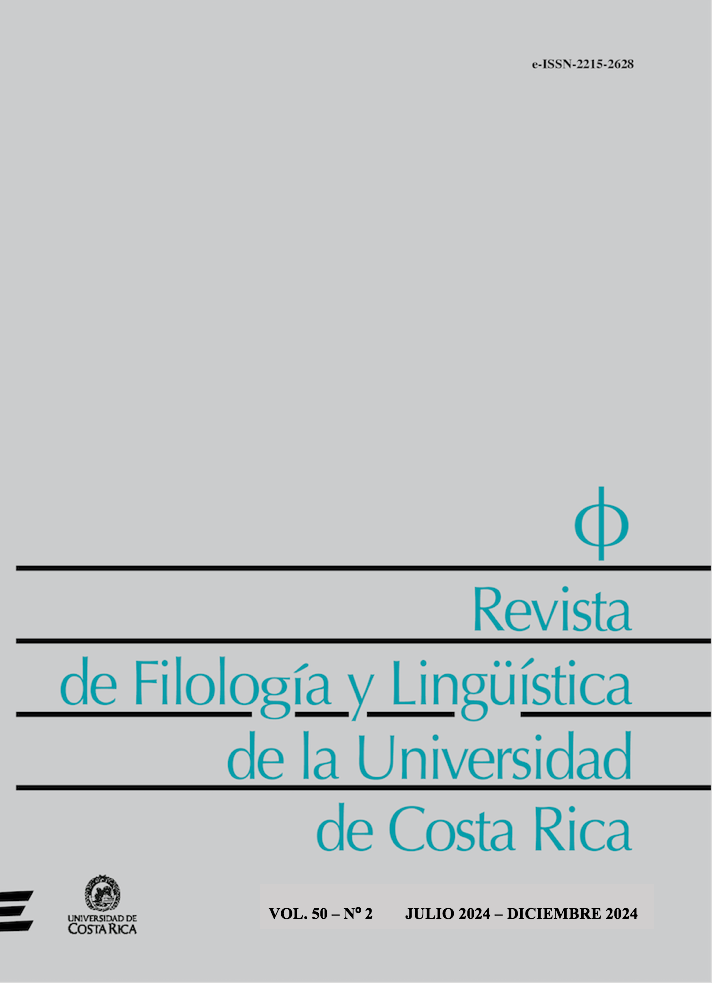Abstract
The objective of this article is to develop an analysis from the perspective of gender inequality in the story “Little Women”, by the Ecuadorian writer Solange Rodríguez Pappe, which is included in the literary work The Kindness of Strangers (2014). in the context of the Latin American narrative of the last two decades of the 21st century. The methodology to be used is textual analysis to show how the fantastic and supernatural element confronts each other between the little women and Joaquín. In relation to the analysis and results, it is concluded that in the narrative context the development of an exploratory-colonizing relationship of the male body is evident in a misogynistic and ambiguous locus in which female subversion is opposed to male domination.
References
Achúgar, H. (1997). Leones, cazadores e historiadores. A propósito de las políticas de la memoria y del conocimiento. Revista Iberoamericana, 64(180), 379-387.
Álvarez, Ó. (2000). Globalización y literatura. ÍSTMICA. Revista De La Facultad De Filosofía Y Letras, (5-6), 243-50. https://www.revistas.una.ac.cr/index.php/istmica/article/view/12672
Bourdieu, P. (2000). La dominación masculina. Anagrama.
Cuadra, A. (2003). De la Ciudad Letrada a la Ciudad Virtual. LOM Ediciones.
Chico, R. (2016). Comprensión, mapeo y compromisos. Consideraciones acerca de La
Corposfera de José Enrique Finol. Finol, José Enrique (2015). La Corposfera. Antro-Semiótica de las cartografías del Cuerpo. Quito: CIESPAL. Opción, 32(80), 311-316. https://www.redalyc.org/journal/310/31047691014/html/
De Beauvoir, S. (2015). El segundo sexo. Siglo XX.
Finol, J. (2015). La corposfera. CIESPAL.
Foucault, M. (2000). Defender la sociedad. Fondo de Cultura Económica.
Foucault, M. (1992). El orden del discurso. Tusquets Editores.
Foucault, M. (1977). Historia de la sexualidad. Siglo XXI.
Foucault, M. (1980). Vigilar y castigar. Editorial Siglo XXI.
García, G. (2011). La posmodernidad y sus modernidades: una introducción. Editorial UCR.
Larraín, J. (1994). La identidad latinoamericana. Teoría e historia. Estudios públicos, 55, 31-64. https://www.studocu.com/latam/document/universidad-de-la-republica/8-historia-contemporanea-de-america-latina/1-larrain-la-identidad-latinoamericana/52633121
Lyotard, J. F. (1979). La condición posmoderna. Les Èditions de Minuit.
Nieto, O. (2015). Teoría general de lo fantástico: del fantástico clásico al posmoderno. Universidad Autónoma de la Ciudad de México - UACM. https://publicaciones.uacm.edu.mx/teoria-general-de-lo-fantastico-del-fantastico-clasico-al-posmoderno-9786077798880.html
Peri Rossi, C. (1999). El amor es una droga dura. Seix Barral.
Quijano, A. (2000). Colonialidad del poder, globalización y democracia [Archivo PDF]. http://www.rrojasdatabank.info/pfpc/quijan02.pdf
Ramírez, J. (2016). Cómo analizar de todo. EUNA.
Roas, D. (2019). El monstruo fantástico posmoderno: entre la anomalía y la domesticación. Revista De Literatura, 81(161), 29-56. https://doi.org/10.3989/revliteratura.2019.01.002
Rodríguez, S. (2014). La bondad de los extraños. Ediciones Antropófago.
Villacorta, C. (2019). «Pos-Bolaño y Piglia: la nueva narrativa latinoamericana del siglo XXI». La nueva novela latinoamericana sin límites. L. Segas y F. Terrones (Coord.). América sin Nombre, 24(1), 19-27. https://doi.org/10.14198/AMESN.2019.24-1.01
Zavala, L. (2019). Cómo estudiar el cuento. Trillas.
##plugins.facebook.comentarios##

This work is licensed under a Creative Commons Attribution-NonCommercial-NoDerivatives 3.0 Unported License.


